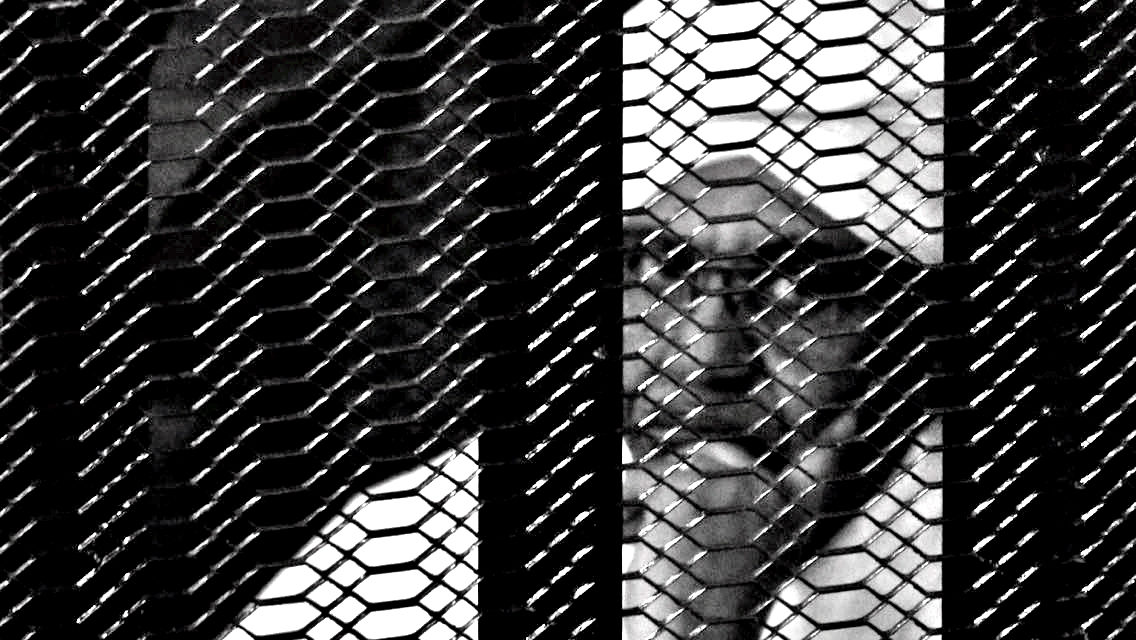Sudan’s ousted Omar al-Bashir on trial in Khartoum.
(cc) AlAdwaa.Online | Mohamed Noureldin | November 2019
Sudan’s ousted long-time leader Omar al-Bashir has been on trial in a Khartoum court since August on charges of possessing illicit foreign currency and corruption. A verdict is expected on Saturday, December 14, 2019.
While Omar al-Bashir is wanted by the International Criminal Court (ICC) in The Hague, which issued arrest warrants against Bashir in 2009 and 2010 on charges of war crimes, crimes against humanity, and genocide in Sudan’s Darfur region, the ousted leader who ruled Sudan until the military removed him in April following months of street protests, is also already on trial in Sudan on charges of possessing illicit foreign currency and corruption. In May, Bashir was also charged with incitement and involvement in the killing of protesters.
The leader of the National Umma Party, Sadiq al-Mahdi, according to the Al-Arabiya Channel, considers the corruption trial of the deposed Sudanese president “a wrong start”, as he is only accused of the least crimes he committed. Al-Mahdi said that “the current government should abide by international laws and should charge the ousted president of all crimes committed by him”.
Some may see the corruption trial of the ousted president as not enough given the grave crimes Bashir committed. However, the prosecution unveils aspects of the person Bashir and his regime.
“[The Bashir trial is] a condemnation of his entire bloody dictatorship and regime.”
Hatem Elias
Sadiq Hassan Ali, the Secretary-General of the Darfur Bar Association, believes that “the trial has made Bashir look like a cheap broker, lacking dignity”. He adds that Bashir comes across as “a person who cares for protecting the reputation of the Gulf emir who gave him money”, but not for “his country and its people”.
Speaking to AlAdwaa.Online, Hatem Elias, a legal expert and a member of Sudan’s Democratic Lawyers Alliance, said that “the image of ousted President al-Bashir standing trial with his undyed moustache reflects his actual end and the end of his regime and his supporters. Moreover, this image is not only a condemnation of Bashir but a condemnation of his entire bloody dictatorship and regime.”
Beyond the current charges
This trial is only the start of a long process towards justice. Elias said that “the files waiting for Bashir can easily fill a train”. He added that “if found guilty or not by the court, there are many other crimes waiting for Bashir, starting from his first crime of his coup d’état with others on the democratic system in 1989, torture and detention, corruption accusations against him and other people in his regime, his brothers and his supporters, and violations against civilians in the conflict zones of Darfur, Blue Nile and Kordofan”.
Ibrahim al-Sheikh, one of the leaders of the Forces of Freedom and Change, the alliance that led the protests ending Bashir’s three-decade rule, said during a press conference that in the event of Bashir’s acquittal in the trials taking place now, Bashir would be handed over to the International Criminal Court. “We have no objection in handing over Bashir to the ICC,” al-Sheikh said. “All the members of the Forces of Freedom and Change agree on that.”
Sooner or later, Bashir will be handed over to the International Criminal Court, said Elias Washmael Al-Nur, a Sudanese journalist, who stressed that “if Bashir is not handed over to the ICC, the transitional government will be in confrontation with the international community, the displaced people, and victims of the conflict in Darfur, Kordofan and Blue Nile, for whose death Bashir is responsible”.
On the other hand, Bashir’s handover to the International Criminal Court will pave the way for the peace process, according to Nur, because armed movements, which the transitional government is negotiating with, see this step as proof of the government’s seriousness in bringing peace. This is a critical issue on the transitional government’s agenda. According to the constitutional document signed by the military council and the Forces of Freedom and Change, six months are allocated for this process.
Mohamed al-Faki, a member of the Sovereignty Council of Sudan, said that “to hand over Bashir to the International Criminal Court, or not, will be a subject of debate between the legal and sovereign bodies of the state. The results of these discussions will be implemented, no matter what they are.”
“To hand over Bashir to the ICC, or not, will be a subject of debate between the legal and sovereign bodies of the state.”
Mohamed Al-Faki
Elias said that “in addition to all of the above, if the current government refuses to hand over al-Bashir and wishes to continue his trial inside Sudan, it should submit a substantiated request confirming that the Sudanese judiciary is capable and qualified to try him”. “It is most probable that the ICC will not accept it,” because “Bashir is wanted for crimes that were not reported in Sudan and there are no articles in the Sudanese law for genocide”, Elias explained.
There are calls among the Sudanese human rights community to rehabilitate the judicial system so that it can try Bashir. However, with all the challenges facing the transitional government, this rehabilitation will inevitably take a long time. Likely, the Sudanese people will not agree to the long waiting scenario. Eventually, they might even come to terms with Bashir being tried abroad if this would mean a swift and thorough process.

